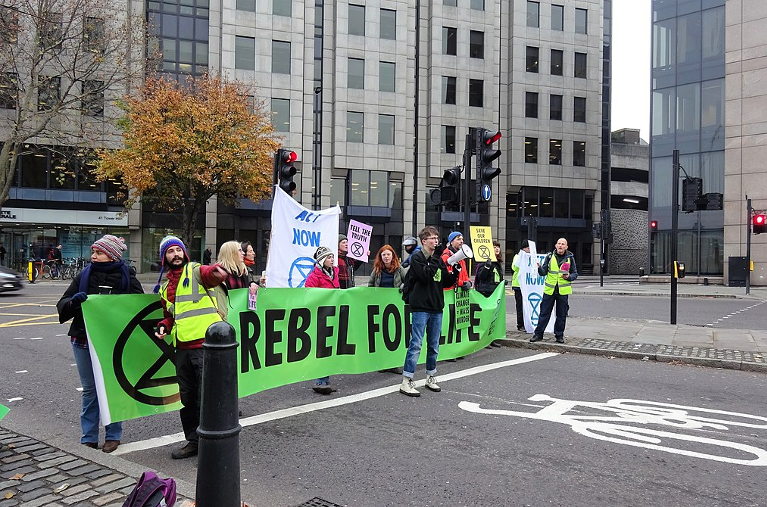I’m surprised I can still be shocked at the incompetence and shortsightedness of this government. But then along comes the chancellor, Philip Hammond, expressing his inane and irresponsible view that we can’t afford to tackle the climate crisis. He has warned that Theresa May’s distant target of 2050 to achieve net zero greenhouse gas emissions will cost the UK over £1tn and starve schools, police and hospitals of funds, while making the UK “economically uncompetitive”.
I’m inclined to respond: it’s not the economy, stupid. It’s the science; it’s literally a matter of life and death. This is a planetary emergency which requires us to look well beyond the business-as-usual approach of the past 100 years – and think outside of the box.
And the public seems to agree. A recent poll shows that concerns over the climate crisis and the collapse of wildlife rank above concerns about the economy.
It is, of course, Greta Thunberg’s generation that will be most affected by climate breakdown rather than Hammond’s. One can only wonder where the chancellor was when the now world-famous teenage climate activist addressed parliament and told MPs that the UK’s response to climate change was “beyond absurd”. Hammond really should spend some time with the climate strikers who refuse to go to school on the basis that, unless people like him invest in the policies we need to reduce carbon emissions, they have no future to be educated for. Even so, I am sure he must have noticed the now ubiquitous placard on such marches saying that “If the planet were a bank they would have saved it by now”.
As for the idea that reducing our carbon emissions will starve schools, police and hospitals of funds, Hammond’s government have managed to do that effectively enough already through ideologically driven austerity.
It’s been clear ever since the Stern review that the benefits of strong action on the climate emergency far outweigh the costs of not acting – and that investing in policies to reduce carbon emissions are the most cost-effective policies that governments can adopt. And, since the cost of dealing with the impacts of the climate crisis, as well as reducing its potential severity, increase every year, the sooner we invest, the bigger the return. Conversely, the longer we leave it the more likely that costs will increase through extreme climatic events such as severe floods and droughts, mass migration and social breakdown.
This is why when it comes to the economics of climate change, Greens believe the way forward is the Green New Deal. This programme will create high skilled, well-paid jobs and improve welfare while addressing the climate emergency. For example, a huge national home insulation programme would create jobs in every community across the country, reduce fuel bills and stop old people dying in cold homes. Investing in cycle lanes and other active travel infrastructure in our cities would also create thousands of jobs and cut the costs of ill health by encouraging people to be more active.
Up to now, the climate crisis negotiating strategy has started from the status quo, revolving around incremental, percentage reductions in emissions or increases in renewables. This approach has failed and every year we stick to this approach we reduce our ability to effectively address the climate emergency. But Thunberg, the school strikes and Extinction Rebellion have entirely transformed the framing of this debate. They are right to say that the starting point is what the science tells us must be done to prevent the destruction of human civilisation. What is existentially necessary must be made politically possible. Within this frame, Hammond’s argument that we cannot afford to save ourselves comes across as exactly what it is: crass, ignorant and immoral.
It simply makes no sense to allow something you can control – money – to be a limit on your ambition to deal with something that your future existence depends on, like the climate crisis. If an enemy army was assembling on the French coast, money would be found to bolster our defences, which is why climate activists say we should treat the climate emergency as if it were a war. Our very existence is at stake.





